|

Gabriela Da Silva
|
Gabriela Da Silva is a first-generation college student from Stockton, California, raised in a Venezuelan immigrant household. She woke up every other Saturday to the sound of her mom blasting Spanish music and making arepas for breakfast. She always felt very close to and proud of her Venezuelan roots, which is why upon learning of the economic and political turmoil happening in Venezuela from family members still living there, she decided in her undergraduate career at UC Berkeley that she would add a second major, public health. She added this course of study in order to learn ways of improving policy, community development, and more through the lens of public health. Ultimately, she aims to use her background to improve the health and well-being of communities she shares connections with and others. She is currently a Master of Public Health student at Columbia University in the sociomedical sciences department, with a concentration in Social Determinants of Health. Prior to attending Columbia University, Ms. Da Silva participated in Teach for America in Los Angeles, where she was a full-time resource specialist teacher. She has a master’s degree in urban education with a concentration in language and culture. She thoroughly enjoyed her time working as a teacher and hopes that her public health-related efforts will improve the health and educational attainment outcomes for generations to come.
|
|
Sergio Gutierrez
|
Sergio Gutierrez is a second-year Ph.D. student in biology, with an undergraduate degree in biology from the University of Havana. His first research experience was in Lepidoptera, where he worked in a lab that focused on the ecology of butterflies, natural history, and the life cycle of endemic butterflies in Cuba. Later, he did his thesis on bioacoustics of tiger moths, a group of Lepidoptera that evolved sound production in their interaction with bats. After moving to Miami and working as a butterfly exhibit curator at Fairchild Tropical Botanic Garden for a few years, Mr. Gutierrez was eager to expand his knowledge of molecular biology and complex physiological processes like limb regeneration. In 2021, he started his Ph.D. program at the University of Miami, where he is researching the interactions between microbiome and host during mice digit tip regeneration. He is excited to work with Dr. Eugenia Corrales Aguilar in Costa Rica during the 2023 MHRT Summer program, where they will focus on studying arboviruses.
|
|
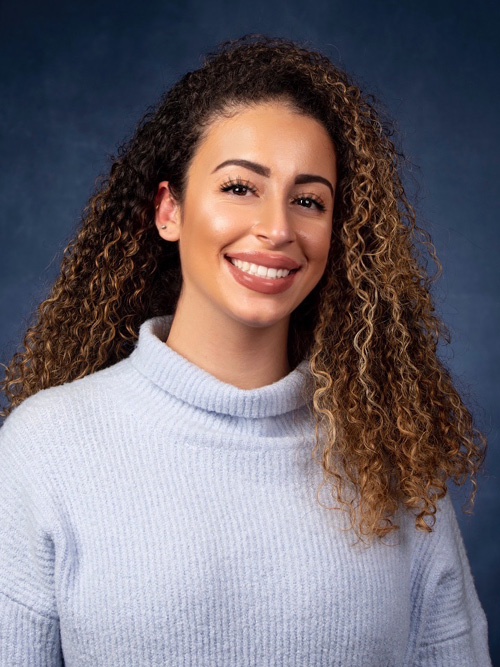
Ranya Marrakchi
|
Ranya Marrakchi is a medical graduate student at University of Miami pursuing a Master of Public Health degree, specifically in epidemiology. The variety of disciplines that she studied throughout her undergraduate education contributed to an experience and training that will help her define, critically assess, and resolve a broad spectrum of medical and public health issues that she may encounter during her career in Public Health.
She was not only involved with Global Brigades, an international non-profit organization with a mission of empowering its volunteers in assisting under-resourced communities to resolve global health and economic disparities; she holds many leadership positions, including as president of the Public Health Student Association and vice president of the Delta Omega Honorary Society in Public Health, as well as a TIPH ambassador for the Association of Schools and Programs of Public Health for the University of Miami.
These invaluable experiences solidified her life’s purpose—to serve and empower under-resourced communities by providing public health services that protect and promote the health of the people. Her goal is to contribute to the expanding research on sustainable health systems while working alongside community leaders and other health professionals. What drives her is to see the positive change of people improving their lives and livelihoods. Ultimately, her lifelong determination is to achieve health equity and eliminate disparities.
|
|
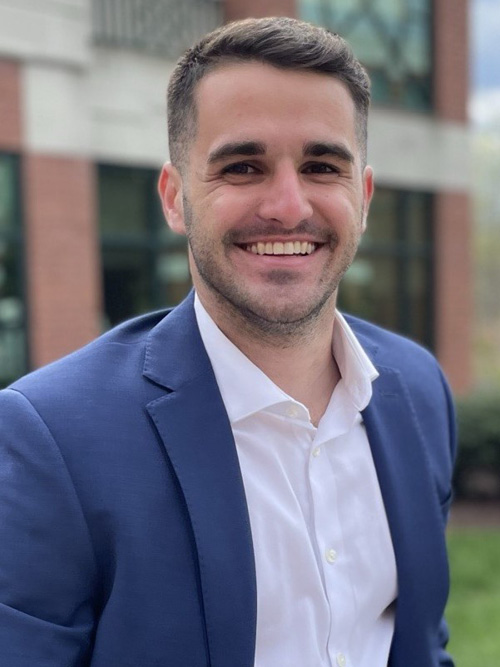
Connor McCarley
|
Connor McCarley is a first-year Ph.D. in epidemiology student at the University of Miami Miller School of Medicine. Mr. McCarley earned a B.S. in health sciences at the University of Florida, a Master of Public Health in epidemiology and global health at the University of South Florida and a CPH credential issued by the National Board of Public Health Examiners. He has previous work and research experience in the Caribbean and Central America, specifically Guyana and Panama, focusing on health disparities. Some of the areas of focus have been adolescent interpersonal and sexual health, frailty, and HIV. He has relevant field experience in the region as he was an adolescent health promoter for two years through the Peace Corps, and credits this experience with shaping his path to epidemiology.
Mr. McCarley plans to work in the Caribbean and Central America upon completion of his Ph.D. to help address health disparities in vulnerable populations. He wants to work in partnership with a wide range of institutions across the region to further grow the collaborative network of the public health field while tackling some of the pressing yet underacknowledged health issues.
|
|
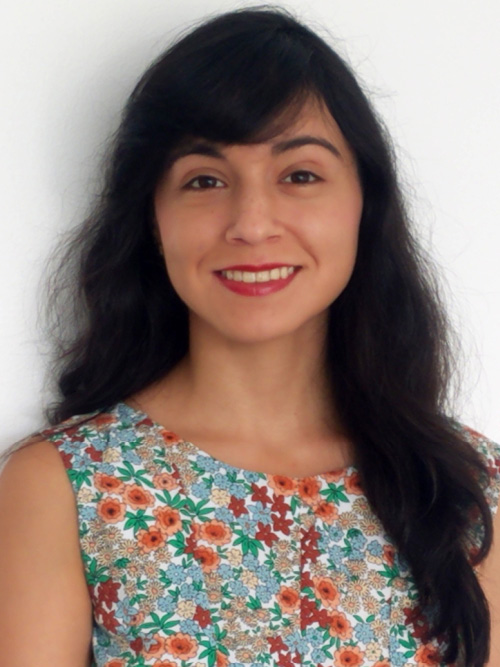
Heidy N. Medina
|
Heidy N. Medina is a recent graduate of the PhD in Epidemiology program at the University of Miami Miller School of Medicine. She graduated from the University of Miami with a BS in Biology and Psychology and completed her Master of Public Health. She is currently a post-doctoral associate working in the realm of cancer control and survivorship.
Throughout her graduate training, Dr. Medina’s focus has been on cancer epidemiology using population-based methods to examine cancer disparities in incidence, survival, and mortality among racial/ethnic minorities and special populations (including patients with multiple primary cancers). She participated in the NCI-funded R25 research training program, Cancer Epidemiology Education in Special Populations Program, through the CUNY School of Medicine which strongly influenced her dissertation entitled “Endometrial Cancer Disparities among Special Populations in Florida and the Caribbean: A Population-Based Approach”, in which she examined patterns of the more aggressive Type II endometrial cancer among populations of African descent.
Her long-term career goals are to elucidate the epidemiological profiles and uncover cancer disparities in marginalized and underrepresented populations, including high-risk populations and racial/ethnic minorities. Other areas of interest include: quality of life and clinical outcomes amongst cancer survivors with metastatic disease, women with gynecological malignancies, and childhood and adolescent/young adult cancer.
|
|
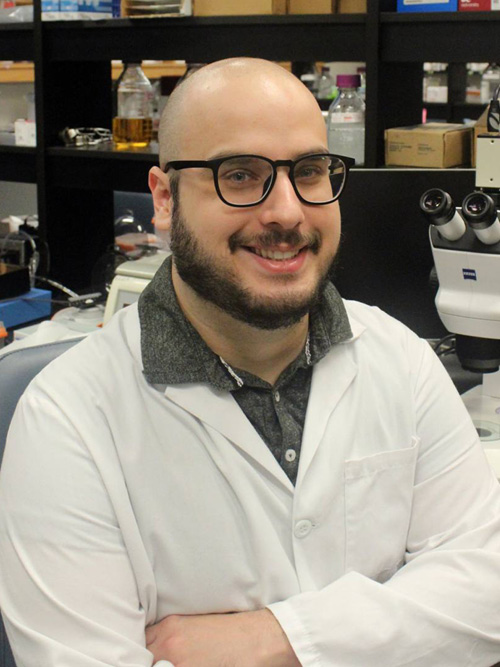
Miguel A. Portales Guemes
|
Miguel A. Portales Guemes is a 4th Year Biology PhD student at the University of Miami. He was born in Havana, Cuba. His family immigrated to the United States and sought political asylum upon arrival. Mr. Portales Guemes is passionate about finding affordable treatments for those affected by “diseases of poverty and neglect.” His research focuses on understanding the molecular mechanisms of regeneration in order to develop effective treatments for limb-loss, a condition that disproportionately affects BIPOC and impoverished communities in America and across the world. He was selected to work with Dr. Esteban Chavez Olarte of University of Costa Rica on the project, “The role of receptor specificity in the biological activity of Toxin B.” The project’s goal is to identify the cellular receptors targeted by traditional Clostridium difficile strains and the hypervirulent nosocomial strain so that new treatments can be developed. The hypervirulent C. diff strain alone is responsible for 29,000 deaths a year in the United States and many more worldwide. Mr. Portales Guemes hopes his research will one day allow for cost-effective treatments to be available to minority and impoverished communities worldwide.
|
|
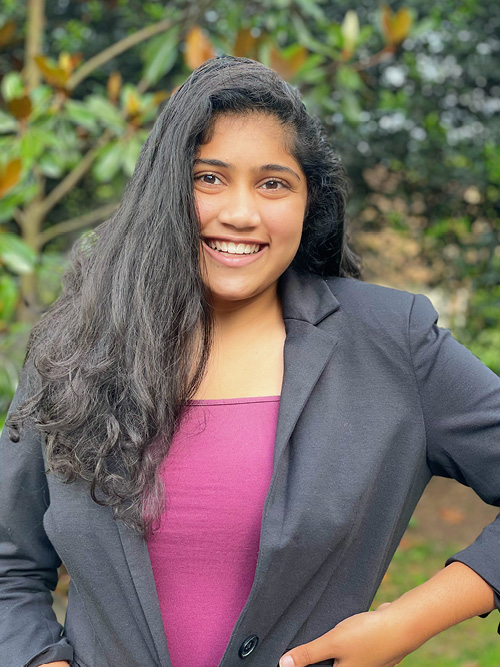
Neha Reddy
|
Neha Reddy is a first-year student at Columbia University pursuing her Master of Public Health degree. She is part of the Health Policy and Management Department and is pursuing a certificate in Global Health. In 2018, she received a Bachelor of Science double degree in Nanomedicine and Clinical Neuroscience from Virginia Tech. Her experiences through research, volunteering, and academics have led her to realize her passion for health systems, global infrastructure, and policy.
Ms. Reddy’s personal background includes various public health projects ranging from volunteering in India to writing a bill for creating a comprehensive care unit in Southwest Virginia, along with many wet lab experiences in biology, neuroeconomics, chemistry, and geology. These projects have broadened her interest to intersect industries and tools to create new technologies and strengthen the world around us. This passion inspired her to pursue further education in health systems and management to create sustainable solutions in global communities.
Ms. Reddy is beyond delighted to begin working with Dr. Handerson Silva Santos this summer in Salvador, Brazil, with the University of Bahia, where she will focus on creating environment and work process monitoring indexes in hospitals that are part of Brazil’s Unified Health System. She is excited to hone her research and managerial skills while experiencing new types of health systems firsthand. She is hopeful that her work will allow for improved efficiency at every system level, leading to a sustainable future for all.
|
|
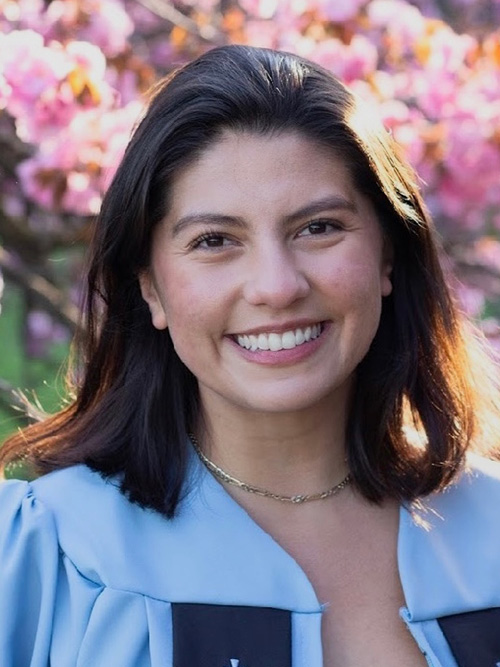
Valentina Rojas Posada
|
Valentina Rojas Posada is a 4+1 student at Columbia’s Mailman School of Public Health in the Sociomedical Sciences Department. She earned her Bachelor’s in medical anthropology at Barnard College.
She immigrated with her parents from Colombia to the United States at a young age and has always been passionate about research and program implementation that addresses health disparities in the Latinx community.
Ms. Rojas Posada’s passions and commitments expand to health equity, environmental justice, and decolonial global health.
In the Summer 2023, she will conduct research with Dr. Augusto Pêrez Gómez in Bogotá on the behavioral health of immigrant Venezuelan families in diaspora.
|
|
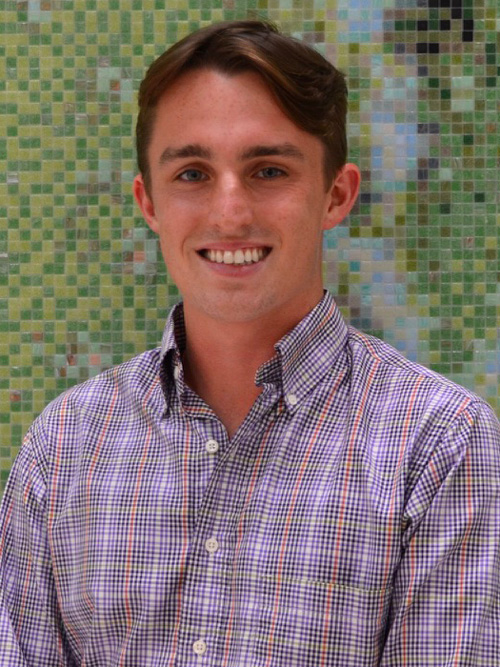
Dalton Scott
|
Dalton Scott, MPH, BSN, RN, graduated with his Bachelor of Science in Nursing from the University of Alabama at Birmingham (UAB) in 2020. In UAB’s Honors Program, he assisted with HIV research aimed at reducing health disparities among underserved urban populations. This research experience combined with international volunteering solidified his desire to work with immigrant populations.
Upon graduation, he accepted a position as a registered nurse in the Neuroscience Intensive Care Unit at UAB Hospital amid the COVID-19 pandemic. During his time at the bedside, he also pursued a Master of Public Health in Health Behavior at UAB and volunteered extensively with the Alabama Interfaith Refugee Partnership (ALIRP). His work with the ALIRP focused on improving access to health care, language, housing, and transportation resources for asylum-seekers living in Alabama.
Dalton’s nursing and public health coursework, volunteer endeavors, and experiences as a nurse revealed a passion for improving health equity among underserved immigrant populations. He is interested in crafting and improving culturally tailored health interventions to meet these populations’ unique health needs. During the MHRT program, he will travel to Colombia to assist in research focused on the behavioral health of Venezuelan families living in diaspora.
|
|
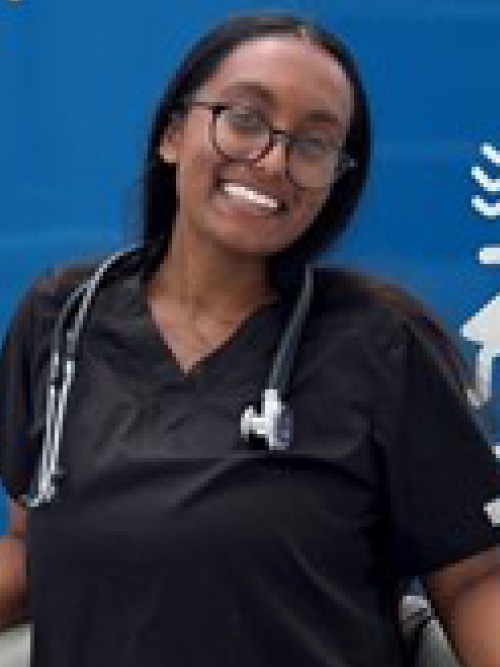
Joann Seunarime
|
Joann Seunarime is a current dual Master of Public Health and Master of Arts in Latin American Studies student at the University of Miami. She is an extremely proud first-generation college student, passionate about global health, civic engagement, volunteer work, human rights, and global affairs, such as health, languages, cultures, and travel. The lives of her parents in Guyana inspired her and their experiences instilled within her a strong passion for helping the underrepresented, underprivileged, and disproportionately affected population. She is committed to her community via her extensive and consistent volunteer experience with two international nonprofit organizations.
Currently, Ms. Seunarime works as a research assistant at the School of Nursing and Health Studies at University of Miami School of Nursing and Health Studies (SONHS), primarily engaging in HIV and IPV qualitative and quantitative research in the Latinx LGBTQ+ community. As a research grantee of the Minority Health and Health Disparities Research Training (MHRT) Program at SONHS, she is working with mentors Dr. Hudson Santos of UM and Dr. Larissa Chaves Pedreira of Universidade Federal da Bahia in Salvador, Bahia, Brazil.
Ms. Seunarime anticipates a career path in global health research and hopes to diminish international health disparities while establishing cultural and ethical health equity. She would also like to become a professor, using her position to teach and advocate for students. Her ultimate dream is to found a nonprofit organization that provides opportunity for the youth of Guyana.
|
|
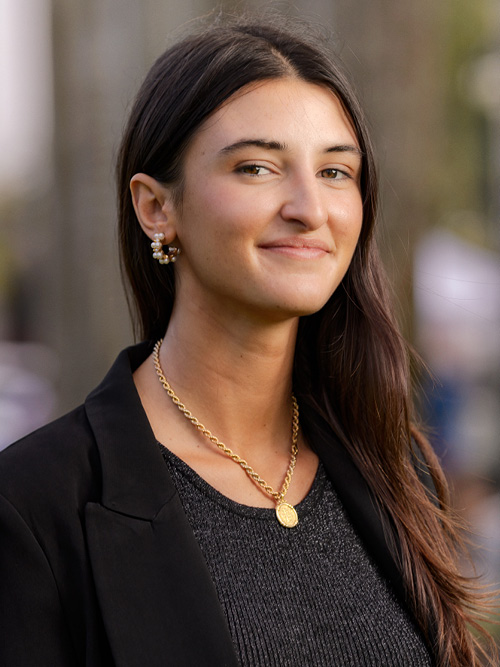
Valentina Waschbusch
|
Valentina Waschbusch is a junior studying Global Health with a concentration in Microbiology and Immunology at the University of Miami, graduating in Fall of 2023. She was born in Buenos Aires, Argentina, and moved to the United States for her secondary and higher education. She currently works at the G.A.I.L (Geography & Inequalities Laboratory) and is a Richter Library Scholar focusing on Health Outcomes in Hispanic Populations.
As a research grantee with the Minority Health and Health Disparities Research Training (MHRT) Program at the School of Nursing and Health Studies at UM, she will be spending her summer in Peru participating in Implementation of the Community Health System Innovation (COHESION-I) in low- and middle-income countries under the mentorship of Drs. Amalia Pesantes and Victoria Behar-Zusman. This is a continuation of a project (COHESION) that started in 2016 as an international collaboration between Mozambique, Nepal, Peru and Switzerland to develop interventions that would improve primary health care services for chronic care.
In the future, Ms. Waschbusch plans to pursue a PhD and contribute to Hispanic health research.
|













